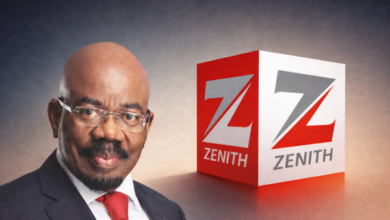
By Ayoola Ajanaku
In Kaduna’s charged political ecosystem and corridors, there’s a name that floats through conversations like a quiet inevitability, and this entity is none other than Bashir Jamoh. Some mention him with admiration, others with guarded calculation, and a few with the cautious tone reserved for forces they cannot quite contain. He is, by many accounts, the elephant in the room: the figure whose presence overshadows campaign rhetoric, even when his name is not spoken aloud. No matter your reservations whatsoever, an elephant in the room is to be reckoned with even in metaphorical terms.
Jamoh is not the archetypal Nigerian politician, warts and all. His resume reads more like that of a senior policy strategist than a vote-seeking contender. For years, he has worked behind the scenes, where precision, metrics, and execution matter more than applause. His career in public administration and project management has been marked by reforms that cut through bureaucratic inertia, digital tools that sped up service delivery, and infrastructure blueprints that translated into real-world improvements. What makes him so hard to ignore in the 2027 Kaduna guber race is not just his track record. It’s the way his presence challenges the traditional political script and narratives.
Kaduna’s politics has long been shaped by familiar patterns: personality contests, patronage networks, and the dominance of party heavyweights. Into this medley walks Jamo, a persona whose strongest currency is not political loyalty, but unalloyed competence. His approach is unsettling to some, precisely because it sidesteps the usual trade-offs of political negotiation. When asked why he’s stepping into the fray now, Jamoh’s answer is simple but pointed: “Plans don’t build themselves. Policies don’t execute themselves. If you want change, you have to put capable hands at the helm.” It’s a statement that resonates with professionals, youth leaders, and civic groups who have grown weary of governance by rhetoric.
Technocrats are often accused of living in spreadsheets and forgetting the street(s). Jamoh’s advocates argue that he breaks that stereotypical benchmark. In the farming communities of Giwa, his name is tied to irrigation schemes that expanded planting seasons. In urban Zaria, small business owners remember his push for streamlined permits that cut processing times from months to days. For the women of rural Birnin Gwari, his initiatives on solar-powered boreholes mean the daily water trek has shortened to a walk within their community. These stories have a unifying theme: he doesn’t just propose; he delivers. And that delivery is why, whether his critics like it or not, he looms over the conversation about Kaduna’s future.
The Jamoh question is like the moniker on JAMB questions for University entry-level students. Being the elephant in the room is not without its complications. In political terms, Jamo’s independence from entrenched patronage systems is a double-edged sword. It frees him from the obligations that weigh down many candidates, but it also means he must work harder to build alliances in a system where loyalty often trumps merit.
Insiders admit off the record that Jamo’s candidacy forces a difficult conversation. If the electorate starts demanding competence as the baseline for leadership, it could upend the delicate balance of political deals that have long defined state politics. For some party apparatchiks, that makes him less of a safe bet and more of a wild card. Jamo represents “Tambaya” or “Tambayoyi” in singular or pluralised terms of the Hausa language. Questions and a new vista are what this thoroughbred entity represents in public domain. Service delivery is his mantra and he has driven on these core values to date.
Public opinion in Kaduna is shifting. The frustrations of youth unemployment, patchy infrastructure, and underfunded healthcare have left many voters willing to consider someone outside the political establishment. Jamoh, with his technocratic precision and no-nonsense delivery, fits that opening. Jamo has become a recurring decimal in the political equation so far. Even among rivals, there’s grudging respect that’s hard to find anywhere. One senior political figure who chose to remain anonymous admitted, “If Jamo enters the race with full backing, everyone has to adjust their strategy.” That is the essence of being the elephant in the room: you alter the terrain simply by standing in it.
For Jamoh, however, the challenge will be converting respect into electoral momentum. He must demonstrate not only that he can elevate the HDI Index, but that he can navigate the messy compromises of democratic governance without diluting his standards. Behind Jamo’s quiet mien is a steely resolve to achieve lofty ambitions that he sets his sight(s) on.
In a nutshell, the man behind the resume, Jamoh, is described as a disciplined but approachable figure. Friends speak of his early mornings spent reading and his habit of sketching project layouts on scraps of paper. He’s as comfortable discussing supply chain efficiency as he is sharing roasted corn with constituents at a roadside stall. A favourite currency of politicians to gauge popularity amongst the masses. That’s a balance of competence without arrogance. It is what his advocates far and wide believe will make him electable beyond the technocratic elite. They argue that he is not just a manager of systems, but a leader who listens before acting.
The unavoidable question therein still remains; Is Bashir Jamoh truly the elephant in Kaduna’s political room? The evidence in public domain suggests yes, in its true sense. His track record and career trajectory at NIMASA, much earlier, his disruption of the political norm, and the quiet recalibration his presence forces on both friends and foes make him a central figure, whether his name tops the polls or not.
The coming months, as a day is a long time in politics, will reveal whether he can transform from the candidate everyone talks about in hushed tones to the candidate who defines a new era for the state. For now, one thing is certain: you can choose to ignore the elephant in the room -whether it’s the tusks, flapping ears, trunk, thick skin, amongst others, but you cannot pretend it isn’t there.
Ayoola Ajanaku is a Communications and Advocacy Specialist based in Lagos, Nigeria….












